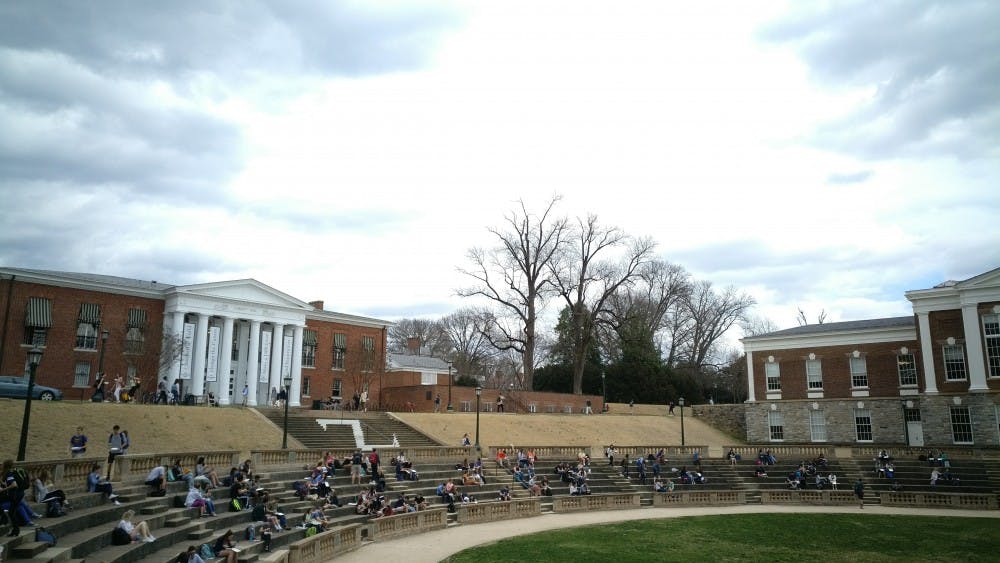The Frank Batten School of Leadership and Public Policy hosted an awards ceremony for the grants given out by the class “Foundations, NGO’s and Public Policy” last Friday. The grants this year were focused on Charlottesville housing issues.
The class is taught and organized by Paul Martin, assistant professor of public policy, and Grey McLean, lecturer of public policy and director of the Adiuvans Foundation. The Batten class gave over $100,000 to seven different nonprofits in the Charlottesville area. Of these seven grants, two capacity grants were supported by the Once Upon a Time Foundation and five were funded by the Adiuvans Foundation.
The Adiuvans Foundation is a private foundation based in Charlottesville which established the Adiuvans Relief Fund that provides support to local nonprofits to address food insecurity, affordable housing and health. The fund provides primarily to organizations located in central Virginia. The foundation sponsored most of the grants awarded to the local organizations. The PPOL 4725 class is tasked with advising the Adiuvans Foundation on awarding the grants, but the foundation has the final decision on recipients.
“On the goals of the class, I’d say that at the broadest level, we try to show the students the role that nonprofit organizations play within the policy arena,” Martin said about the organizations involved with the course. “They are front-line implementers of a significant amount of social policy — they are problem-definers who help communities understand and confront problems and they are lead advocates for policy changes.”
At the event in Garrett Hall, students, faculty and local coordinators attended a lunch and subsequent ceremony. Among the attendees and grant recipients were the Salvation Army, the Piedmont Housing Alliance, Habitat for Humanity, the Legal Aid Justice Center, Virginia Supportive Housing and The Haven.
The Salvation Army provides hot meals, emergency overnight shelter and support for housing for residents in Charlottesville who are in poverty and in need and received $7,000 at the event. The Piedmont Housing Alliance, which received $18,000, works directly with the redevelopment of Friendship Court, a public housing community near downtown Charlottesville. PHAR, the Public Housing Association of Residents, received a $5,000 capacity grant.
Habitat for Humanity, which has been involved in redeveloping the Southwood community trailer park, received $12,000. The Legal Aid Justice Center received $18,000 and has focused on gentrification and various issues surrounding race, justice and fair housing. Virginia Supportive Housing has been working with the Crossings, a homeless community, and received $14,000.
The Haven is another shelter in Charlottesville, but operates during the day and provides local residents in poverty with showers, storage, a physical mailing address, laundry and food. The Haven received $14,000 from the Adiuvan Foundation in addition to money from the capacity grant, which awarded them $15,000.
The Haven’s Executive Director, Stephen Hitchcock, expressed The Haven’s excitement for these grants and explained how this money will benefit the lives of the homeless people it works with.
“For us, it's a way of bolstering that front door, that point of entry to the homeless system of care,” Hitchcock said about the grant money. “And then the second part is really a way of making sure that as a continuum of organizations we have the ability to respond in real time to the needs and make choices that are intervening in the crisis in real time.”
Hitchcock also described the experience of working with University students as “uniquely wonderful and terrifying.”
“It's unique because generally I do that kind of research when I am going to write a grant to funder,” Hitchcock said. “It's strange for that funder to do that to you.”
Hitchcock said he and The Haven are grateful to have passionate and educated students impact the work of the organization because it challenges The Haven to rethink and improve.
Third-year College student Maddie Curry was a keynote speaker at the event. She discussed how this class has shaped her academic career as a Global Development Studies major and as a Charlottesville and University community member.
“This class has been so important to my general undergraduate education because it focuses directly on the problem of housing in Charlottesville,” Curry said. “Personally, I didn't really know about the gravity of the problem before i joined this class.”
With the University being a top employer in the area, it plays a pivotal role in the economy and housing affordability of Charlottesville.
“The University is the largest employer in the [Charlottesville] community, so something that really angered me this semester was that the University doesn’t pay people enough,” Curry said.
Fourth-year Batten student Caleb Karnes said University students often have more influence in the housing crisis than they may initially think.
“Every year that [the University] grows or over-enrolls students is a year that we expand further into the Charlottesville community,” he said. “There is a limited number of housing units available within the city, and those that are available are too expensive for many people.”
This Batten class is open to all students enrolled at the University and has been a longstanding course.







